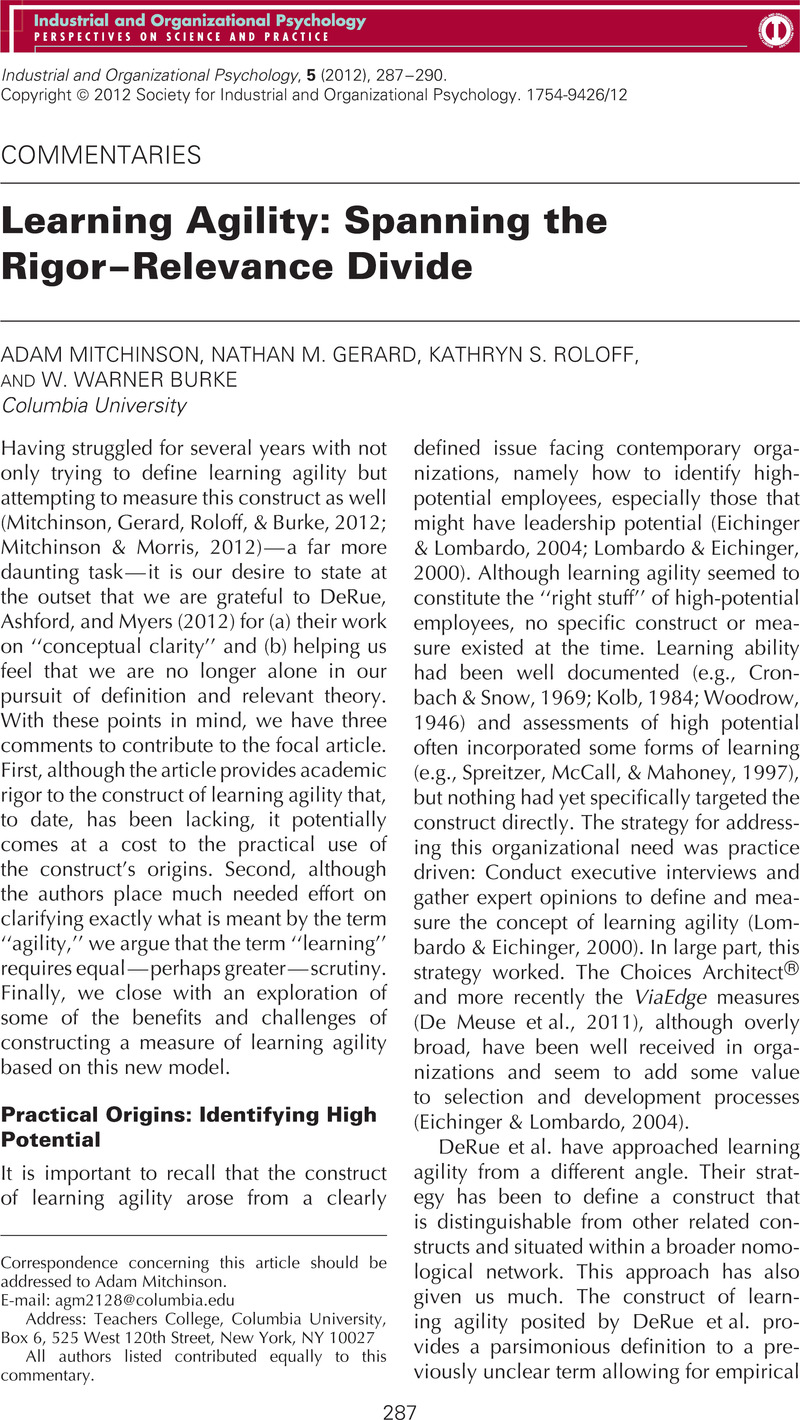Crossref Citations
This article has been cited by the following publications. This list is generated based on data provided by Crossref.
DeRue, D. Scott
Ashford, Susan J.
and
Myers, Christopher G.
2012.
Learning Agility: Many Questions, a Few Answers, and a Path Forward.
Industrial and Organizational Psychology,
Vol. 5,
Issue. 3,
p.
316.
류혜현
and
Oh,Hun-Seok
2016.
Learning agility: Issues and Challenges.
The Korean Journal of Human Resource Development Quarterly,
Vol. 18,
Issue. 4,
p.
119.
박정열
and
Kim Jin-Mo
2019.
The Development of Workplace Learning Agility Assessment Inventory for Knowledge Workers.
The Korean Journal of Human Resource Development Quarterly,
Vol. 21,
Issue. 4,
p.
115.
Tapis, Gregory P.
and
Priya, Kanu
2020.
Developing and Assessing Data Analytics Courses: A Continuous Proposal for Responding to AACSB Standard A5.
Journal of Emerging Technologies in Accounting,
Vol. 17,
Issue. 1,
p.
133.
Coruzzi, Celeste A.
2020.
Leading Change With Intelligence: The Power of Diagnosis in Creating Organizational Renewal.
The Journal of Applied Behavioral Science,
Vol. 56,
Issue. 4,
p.
420.
Ghosh, Susmita
Muduli, Ashutosh
Pingle, Sameer
and
Akram, Umair
2021.
Role of e-learning technology and culture on learning agility: An empirical evidence.
Human Systems Management,
Vol. 40,
Issue. 2,
p.
235.
Wagner, Daniela
2023.
Lernen 4.0.
p.
83.
Tripathi, Aastha
and
Dhir, Swati
2023.
HRD interventions, learning agility and organizational innovation: a PLS-SEM modelling approach.
International Journal of Organizational Analysis,
Vol. 31,
Issue. 6,
p.
2322.
Cárdenas-Muñoz, Mar
Rubio-Andrada, Luis
and
Segovia-Pérez, Mónica
2024.
Exploratory analysis on learning behaviours that favour job crafting.
Management Decision,
Vol. 62,
Issue. 7,
p.
2265.
Carmeli, Abraham
and
Hartmann, Silja
2024.
Learning Agility Orientation, Ambidextrous Learning, and Resilience.
IEEE Transactions on Engineering Management,
Vol. 71,
Issue. ,
p.
12946.



